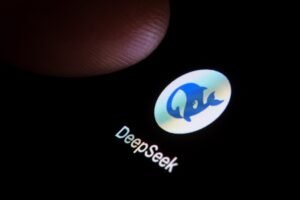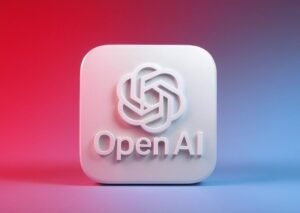DeepSeek Offers Abundant Rewards, But Beware of Potential Risks

Commonwealth’s Ban on DeepSeek: A Security Perspective
In February, the Commonwealth made a significant decision to prohibit the use of the Chinese artificial intelligence platform DeepSeek on work devices due to escalating security concerns. This action highlights the growing apprehensions around data security and privacy in the context of rapidly advancing AI technology.
What is DeepSeek?
DeepSeek is a generative AI platform that utilizes a large language model. It is designed to perform complex reasoning tasks, showcasing impressive capabilities comparable to those of leading AI models like OpenAI’s ChatGPT. However, DeepSeek is noted for being developed at a much lower cost compared to its competitors. This has raised eyebrows regarding the technology’s funding sources and potential safety issues.
Reasons for the Ban
Security Concerns
The main reason behind the Commonwealth’s ban revolves around data security. Given the sensitive nature of governmental and corporate information, there’s a critical need to ensure that any AI tools in use do not compromise data integrity or confidentiality. Concerns about the potential for espionage or unauthorized data access have led to stricter regulations surrounding the use of foreign AI technologies, particularly from nations considered adversarial.
Trust Issues
The reliance on AI platforms developed in countries with opaque governmental practices introduces a level of uncertainty. This has prompted organizations to question the trustworthiness of such platforms. Using tools like DeepSeek might lead to unintended data leaks or misuse, reinforcing the decision to limit its use.
Performance of DeepSeek Compared to Competitors
DeepSeek is known for its efficiency and capacity to handle complex tasks. Some of its performances include:
- High-level Reasoning: DeepSeek excels in problem-solving and reasoning applications, making it a valuable asset in various scenarios where complex thought processes are required.
- Cost-effectiveness: As mentioned, it has been created at a significantly lower investment than its main competitors, which raises discussions about its development resources and methods.
Implications of the Ban
Impact on Work Efficiency
The restriction on DeepSeek could potentially stall the integration of innovative tools that drive productivity in various sectors. Organizations seeking to utilize cutting-edge AI may have to revert to more established platforms, which might not bring the same level of innovation or cost savings.
Future Developments
The ban may push AI developers to enhance security features in their models to comply with international standards. It also opens dialogue about the need for more rigorous security assessments of AI technologies, particularly those originating from countries with complicated geopolitical relations.
Alternatives to DeepSeek
In light of the ban, organizations will need to consider alternative AI platforms. Some viable substitutes include:
- OpenAI’s ChatGPT: Known for its versatility and strong support community, this platform continues to evolve, ensuring user data stays secure.
- Google’s BERT: This model is primarily used for natural language processing and offers robust capabilities, although it operates differently than generative AI.
- Microsoft’s Azure AI: A comprehensive platform that includes a variety of AI tools and services with a strong emphasis on security and compliance.
Conclusion
While the decision to ban DeepSeek reflects escalating security concerns, it also challenges organizations to critically assess their AI choices and prioritize data safety in a digital age defined by rapid technological advancements. The repercussions of such decisions may lead to broader conversations about the future of AI and security measures.






